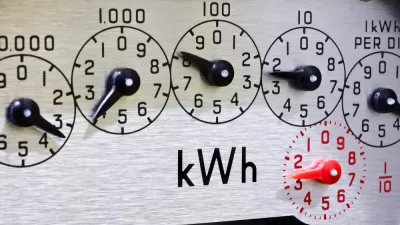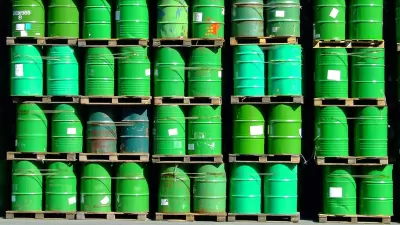The only major candidate, Democrat or Republican, to call for an end to the contentious ethanol mandate won the Republican caucus, clearly beating Donald Trump. That could doom what many even in Iowa, among even some farmers, call a boondoggle.
This is not your grandfather's Iowa, demographically speaking. While many have pointed to the Hawkeye State's lack of racial diversity, one change that escaped many in the media is its urbanization, and that means that the ethanol mandate, a requirement that biofuel be mixed into gasoline, is not of paramount importance, to the chagrin of the governor.
"It would be a big mistake for Iowa to support [Sen. Ted Cruz]," [Gov. Terry Branstad (R)] told reporters at a forum held by the Iowa Renewable Fuels Association, writes Coral Davenport, climate and energy reporter for The New York Times.
Energy policy experts, advocates in the fight on poverty and even other farmers say a law that has been a boon for Iowa has been a boondoggle to the rest of the country.
“Culturally, anything that supports corn is seen as good,” said Bruce Babcock, an economist at Iowa State University, pondering whether ethanol’s grip here was slipping. “But if Ted Cruz wins the caucus, there’s your answer.”
The article appeared in Monday's paper, the day the caucus was held. "With 98 percent of precincts reporting, Mr. Cruz had nearly 28 percent of the vote, Mr. Trump 24 percent and Mr. Rubio 23 percent," reports The New York Times on Tuesday.
"When the Renewable Fuel Standard (aka ethanol mandate) was enacted [in 2005], lawmakers hoped to ease the nation’s dependence on foreign oil while promoting a low-carbon, climate-friendly alternative," writes Davenport.
- Oil was nominally priced at $50, or $60.44 when adjusted for inflation in 2005. "Peak oil" was a concern due to declining domestic oil output. Fracking hadn't entered the modern lexicon.
- On Tuesday, "New York-traded crude oil fell 5.5% to $29.88 a barrel," reported The Wall Street Journal, less than half the inflation adjusted price a decade ago.
- "Domestic crude oil production surpassed crude oil imports in October 2013 for the first time since 1995," according to a White House blog post that was confirmed by PolitiFact, as the U.S. overtook Saudi Arabia to become the world's top oil producer in 2014. And the U.S. is now exporting crude oil, and not just to Canada now that the 42-year-old ban has been lifted.
That leaves only the environmental argument for the mandate. However, because of its implementation, carbon emissions are not being reduced as they would be if operated under a performance-based approach, as Margo Oge explained in a New York Times op-ed posted here Monday.
Ethanol has flourished without being subsidized for over four years. Can it survive without a mandate?
FULL STORY: Ethanol Mandate, a Boon to Iowa Alone, Faces Rising Resistance

Alabama: Trump Terminates Settlements for Black Communities Harmed By Raw Sewage
Trump deemed the landmark civil rights agreement “illegal DEI and environmental justice policy.”

Planetizen Federal Action Tracker
A weekly monitor of how Trump’s orders and actions are impacting planners and planning in America.

Why Should We Subsidize Public Transportation?
Many public transit agencies face financial stress due to rising costs, declining fare revenue, and declining subsidies. Transit advocates must provide a strong business case for increasing public transit funding.

Understanding Road Diets
An explainer from Momentum highlights the advantages of reducing vehicle lanes in favor of more bike, transit, and pedestrian infrastructure.

New California Law Regulates Warehouse Pollution
A new law tightens building and emissions regulations for large distribution warehouses to mitigate air pollution and traffic in surrounding communities.

Phoenix Announces Opening Date for Light Rail Extension
The South Central extension will connect South Phoenix to downtown and other major hubs starting on June 7.
Urban Design for Planners 1: Software Tools
This six-course series explores essential urban design concepts using open source software and equips planners with the tools they need to participate fully in the urban design process.
Planning for Universal Design
Learn the tools for implementing Universal Design in planning regulations.
Caltrans
Smith Gee Studio
Institute for Housing and Urban Development Studies (IHS)
City of Grandview
Harvard GSD Executive Education
Toledo-Lucas County Plan Commissions
Salt Lake City
NYU Wagner Graduate School of Public Service




























